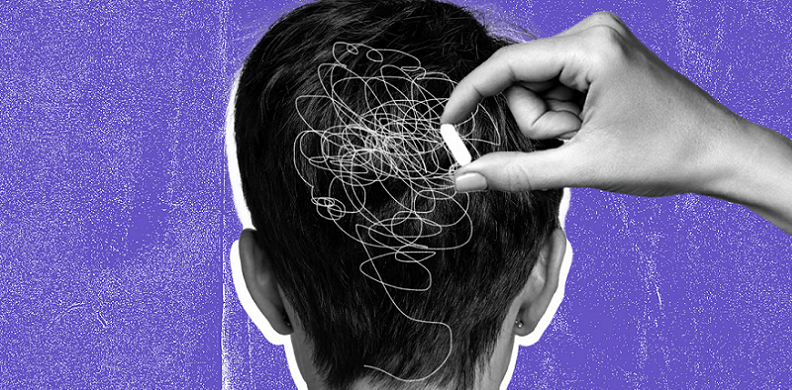
Attention-Deficit/Hyperactivity Disorder (ADHD) is a complex and multifaceted condition that affects millions of people worldwide, presenting challenges in daily functioning, focus, and overall cognitive health. Traditionally managed through a combination of behavioral therapy and medication, there is an ongoing search for more effective and holistic approaches. Among the emerging solutions, nootropics — a class of cognitive enhancers — have garnered significant attention. Specifically, Citicoline, a naturally occurring brain chemical, has shown promise in offering a new perspective on ADHD management.
Contents
Understanding ADHD
Before delving into the specifics of Citicoline and its potential role in managing ADHD, it is essential to have a comprehensive understanding of ADHD itself.
Definition and Symptoms of ADHD
Attention-Deficit/Hyperactivity Disorder, commonly known as ADHD, is a neurological disorder characterized by a persistent pattern of inattention and/or hyperactivity-impulsivity that interferes with functioning or development. Inattention manifests as wandering off task, lack of persistence, difficulty sustaining focus, and being disorganized, not due to defiance or lack of comprehension. Hyperactivity refers to excessive motor activity when it is not appropriate, or excessive fidgeting, tapping, or talkativeness. Impulsivity may be seen as hasty actions that occur in the moment without forethought and that may have high potential for harm; or a desire for immediate rewards or inability to delay gratification.
Common Treatments and Limitations for ADHD
ADHD is typically managed through a combination of medication and behavioral therapy. The most common medications used are stimulants like methylphenidate and amphetamines, which have been shown to be effective in increasing concentration and reducing impulsivity and hyperactivity. However, these medications come with potential side effects, such as sleep problems, decreased appetite, delayed growth, and mood swings. Behavioral therapy, on the other hand, aims to change behavior through techniques like organizational skills training, behavior modification, and family therapy. While effective for many, these approaches do not work for everyone, and finding the right treatment plan can be a long and frustrating process for many individuals with ADHD.
Impact of ADHD on Daily Life
Living with ADHD can significantly impact daily life, affecting everything from academic performance to personal relationships. Children with ADHD may struggle with schoolwork and social interactions, while adults may face challenges in workplace productivity and maintaining relationships. The disorder can also impact self-esteem and mental health, leading to feelings of frustration, guilt, and low self-worth. Understanding the full impact of ADHD is crucial for appreciating the need for effective management strategies, such as the potential use of Citicoline.
What is Citicoline?
To appreciate the potential of Citicoline in managing ADHD, it’s important to first understand what Citicoline is, its composition, and how it functions within the brain. This knowledge is key to comprehending why Citicoline might be an effective treatment for ADHD.
Chemical Composition and Properties of Citicoline
Citicoline, also known as CDP-choline (Cytidine Diphosphate-choline), is a naturally occurring compound found in every cell of the body. Chemically, it’s a compound of cytidine and choline, both of which are essential for the healthy functioning of the brain. Citicoline is unique because it serves as a precursor to phosphatidylcholine, a major component of brain cell membranes, and also increases the levels of several other important neurotransmitters, including acetylcholine, dopamine, and norepinephrine [1].
Citicoline Mechanism of Action in the Brain
The way Citicoline works in the brain is multifaceted. By contributing to the synthesis of phosphatidylcholine, Citicoline helps maintain the integrity and fluidity of brain cell membranes. This is crucial for the proper functioning of neurons and for the efficient transmission of signals across nerve cells. Additionally, Citicoline enhances the production of neurotransmitters, vital for communication between neurons. It’s this combination of membrane stabilization and neurotransmitter synthesis that underlies Citicoline’s potential as a cognitive enhancer and neuroprotectant.
Historical and Current Uses of Citicoline
Citicoline has a rich history of use, initially developed in Japan in the 1960s for the treatment of stroke. It was later introduced in Europe as a prescription drug for cognitive impairments such as memory loss, dementia, and stroke recovery. In recent years, Citicoline has gained popularity as a dietary supplement for cognitive enhancement, often found in nootropics, which are compounds that claim to improve cognitive function. Its use in ADHD management, while relatively new, is grounded in its ability to improve focus, attention, and mental energy, which are areas commonly affected by ADHD.

Citicoline and ADHD
With a better understanding of both ADHD and Citicoline individually, we can now explore the intersection of these two subjects. This section delves into how Citicoline might influence cognitive functions related to ADHD, comparing its effects with those of traditional ADHD medications.
Research on Citicoline’s Effect on Cognitive Functions
Recent studies have begun to shed light on the potential benefits of Citicoline for individuals with ADHD. Research indicates that Citicoline may enhance cognitive functions such as focus, attention, and memory—areas that are often challenging for those with ADHD. Studies suggest that Citicoline’s ability to increase neurotransmitter levels in the brain, especially dopamine, plays a key role. Dopamine is a critical neurotransmitter for attention and focus, and its dysregulation is a key factor in ADHD. By boosting dopamine levels, Citicoline may help mitigate some of the core symptoms of ADHD [2].
How Citicoline Could Benefit ADHD Symptoms
The potential benefits of Citicoline in ADHD management are multifaceted. Apart from improving neurotransmitter balances, Citicoline may also aid in enhancing brain energy metabolism and neuroplasticity, which are crucial for learning and adapting to new tasks. These effects could translate into improved concentration, reduced impulsivity, and better overall cognitive functioning in individuals with ADHD. Additionally, because Citicoline is a natural compound with a low risk of side effects, it might offer a safer alternative or complement to traditional stimulant medications used in ADHD treatment.
Comparison of Citicoline with Traditional ADHD Medications
When compared to traditional ADHD medications, such as stimulants like methylphenidate, Citicoline offers a different mechanism of action. While stimulants primarily increase dopamine and norepinephrine levels quickly and directly, Citicoline works more indirectly and gradually, potentially leading to a more balanced and sustained cognitive enhancement. Furthermore, the risk of side effects and dependency associated with stimulant medications is significantly lower with Citicoline, making it an attractive option for long-term management of ADHD.

Potential Benefits of Citicoline for ADHD Management
Having explored the relationship between Citicoline and ADHD, it is crucial to delve into the specific benefits that Citicoline may offer in the context of ADHD management.
Citicoline Increases Cognitive Enhancement
One of the primary potential benefits of Citicoline in the context of ADHD is cognitive enhancement. Citicoline has been shown to improve several cognitive functions, including memory, concentration, and the ability to focus for extended periods. These improvements are particularly relevant for individuals with ADHD, who often struggle with attention deficits and memory issues. By boosting brain health and function, Citicoline can contribute to better overall cognitive performance, which is a critical need in ADHD management [3].
Citicoline Improves Focus and Attention
Citicoline’s impact on focus and attention is another significant benefit for those with ADHD. The compound’s ability to increase dopamine and norepinephrine levels in the brain can lead to enhanced alertness, attention, and focus. These effects are particularly beneficial for addressing the core symptoms of ADHD, such as inattentiveness and distractibility. Regular supplementation with Citicoline could result in sustained improvements in these areas, helping individuals with ADHD to manage their symptoms more effectively.
Citicoline Reduces in ADHD Symptoms
Beyond improving cognitive functions, Citicoline has the potential to directly reduce some of the characteristic symptoms of ADHD. This includes reducing impulsivity and hyperactivity, as well as improving task persistence and organizational skills. By supporting overall brain health and neurotransmitter balance, Citicoline can contribute to a more balanced and controlled behavioral profile in individuals with ADHD.
Side Effects and Safety Considerations of Citicoline
An important aspect of Citicoline’s potential benefits is its safety profile. Unlike many traditional ADHD medications, Citicoline is generally well-tolerated and associated with fewer and less severe side effects. This makes it a potentially safer option for long-term use, particularly for individuals who are sensitive to the side effects of stimulant medications. However, it is always advisable to consult with a healthcare provider before starting any new supplement, especially when dealing with a complex condition like ADHD [4].
Integrating Citicoline into ADHD Management
With the potential benefits of Citicoline for ADHD management established, the next crucial step is to understand how to effectively integrate Citicoline into a treatment plan. This integration involves considering the appropriate dosage, possible interactions with other medications, and the broader context of lifestyle and diet.
Recommended Dosages and Forms for Citicoline
The effectiveness of Citicoline largely depends on the correct dosage, which can vary depending on individual needs and health conditions. Generally, studies have used dosages ranging from 250 to 2,000 mg per day, with higher doses often used for more severe cognitive impairments.
For ADHD management, a moderate dosage, typically around 500-1,000 mg per day, is commonly recommended. Citicoline is available in various forms, including capsules, tablets, and powders. It is important to start with a lower dose and gradually increase it, monitoring for any side effects or reactions, and always under the guidance of a healthcare professional.
Synergy of Citicoline with Other Nootropics or Medications
Citicoline can be used in conjunction with other nootropics or medications, but it is crucial to understand the potential interactions. For instance, when combined with other supplements that increase dopamine levels, such as L-Tyrosine, it may enhance the overall cognitive boosting effect [5].
However, when taken with stimulant medications for ADHD, such as methylphenidate or amphetamines, the interaction could lead to an excess of dopamine, which might have adverse effects. Therefore, it’s essential to consult with a healthcare provider to tailor the combination of treatments to the individual’s specific needs and to avoid any negative interactions.
Lifestyle and Dietary Considerations
Incorporating Citicoline into ADHD management is not just about the supplement itself, but also about adopting a lifestyle and diet that support cognitive health. A balanced diet rich in omega-3 fatty acids, antioxidants, and other nutrients that support brain health can enhance the effects of Citicoline.
Additionally, regular exercise, adequate sleep, and stress management techniques are vital components of an effective ADHD management strategy. These lifestyle factors can help maximize the benefits of Citicoline and contribute to overall well-being.
References
[1] Dietary Supplement May Improve Attention in Adolescent Males
[2] Improvements in Concentration, Working Memory, and Sustained Attention Following Consumption of a Natural Citicoline-Caffeine Beverage
[3] The Effect of Citicoline Supplementation on Motor Speed and Attention
[4] Can You Manage ADHD Without Prescription Medication?
[5] Citicoline Improves Teen/Adult Attention In Two Trials

